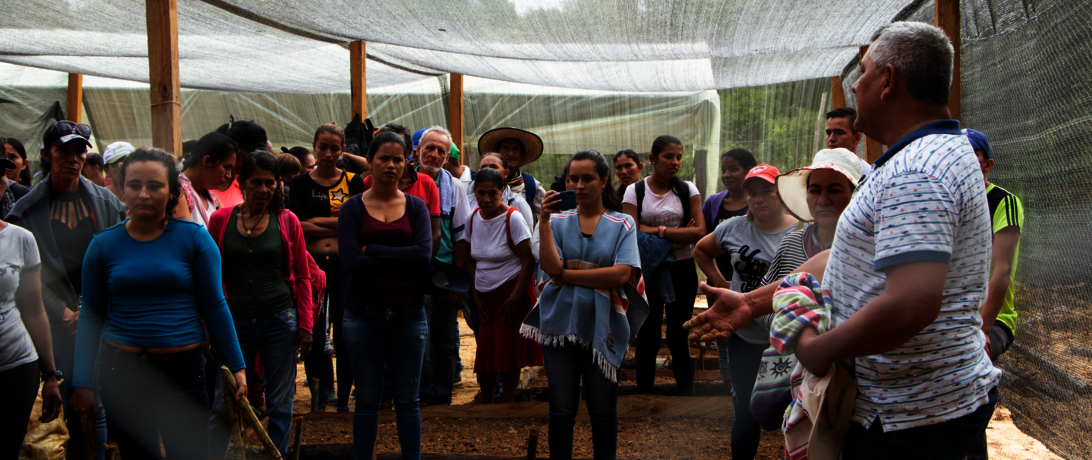
Former coca grower families reactivate a biofactory to produce animal concentrates, reducing the cost of productive livestock projects and strengthening sustainable economic alternatives in the region of Catatumbo.
Strengthening sustainable economic alternatives in territories with a high concentration of illicit crops is crucial for families who decided to support substitution efforts and contribute to rural development in their region. This is precisely what the Caño Indio biofactory in Tibú aims to achieve by reducing the cost of inputs for animal husbandry projects in the region.
During the Contingency Plan to Support Ex-coca Grower Families, implemented by PASO Colombia in Tibú, Norte de Santander, 191 participants were trained and worked for the construction of an animal concentrate biofactory. This project, which is financed by the UN Post-Conflict Multi-Partner Trust Fund for Colombia and developed in coordination with the Presidential Council for Stabilization and Consolidation, succeeded in promoting teamwork to engage participants in strengthening productive development alternatives in their territory. The project was temporarily halted in 2020 due to the COVID-19 pandemic, but now it has fully resumed activities, offering hopes of economic and labor reactivation for the families of Caño Indio and Vetas.
Mrs. Saura Estupiñán, a participant in the project, recalls that prior to the implementation of the Contingency Plan, “a crucial moment [in which we had to decide] whether to resume [coca growing] or to wait and stay. We were adrift, and then, PASO Colombia arrived, which was a salvation because feeding pigs, fish, and chickens was too expensive for us, and we needed productive projects. Therefore, the Contingency Plan offered an alternative and allowed us to produce animal feed by ourselves. This is how we came up with the idea of the biofactory, a space with warehouses where products can be created, stored, and distributed.” The construction of the biofactory was completed in the midst of the pandemic, but lockdown measures halted its operation.
The Contingency Plan strengthened local associative capacities, allowing 56 families to organize and create the Agro-Industry Association of Catatumbo (AGROINCAT, for its acronym in Spanish). This association has been a crucial element in promoting the reactivation of the biofactory and the agricultural development that benefits the farms of project participants. “This is a campesino non-profit association that seeks to transform the territory by creating a new legal economy that transforms plant materials into animal feed,” says Mrs. Sandra Durán, legal representative of AGROINCAT.
Catatumbo is a region hard hit by violence and armed conflict. Its roads are in very poor condition, and the high cost of inputs creates great difficulties to develop agricultural projects. To address this situation, AGROINCAT promotes the cultivation of cassava, taro, gliricidia leaves, tree marigold, and corn, among others, to be used as inputs in the biofactory for the production of animal feed. Currently, the project has a yield of 100 kilos per week, which are sold 25 percent cheaper to local buyers, thus improving the sustainability of livestock projects developed by campesino families. As Sandra explains, “We want to support campesinos who want to leave illicit crops behind by offering new employment opportunities, improving job stability, reducing costs for livestock production, and implementing agricultural crops that generate income for families.”
In the medium term, the association is working to establish more agricultural crops to increase the production of concentrates and market its products at the regional level. PASO Colombia is providing technical support to this project and is seeking new partners to consolidate its economic proposal in the long term.
Learn about Saura’s story in the series “Women Seeding Peace”:
